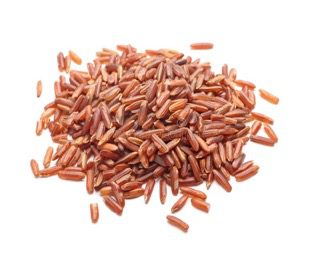

Red rice, also known as Bhutanese rice or Weedy rice, is a nutritious grain option for dogs. It originated in Bhutan but can now be found in many parts of the world. Red rice is packed with essential nutrients like protein, fiber, and antioxidants that promote healthy organ function. Its flavonoid antioxidants also aid in reducing inflammation and protecting against chronic diseases. However, dogs should consume it in moderation to avoid digestive issues like gas, bloating, and stomach upset. Excessive consumption of red rice can also lead to arsenic toxicity, which can be harmful to dogs.
Red rice is a more nutritious option than white rice, with higher levels of protein, fiber, and antioxidants. The flavonoid antioxidants in red rice can reduce inflammation and protect against chronic diseases. Its fiber content promotes healthy digestion and regulates blood sugar and cholesterol levels. Red rice also contains calcium, magnesium, and selenium, which promote healthy bones, teeth, and organ function.
Excessive consumption of red rice can lead to digestive issues such as indigestion, stomach upset, gas, and bloating. Additionally, red rice contains arsenic, which can be harmful if consumed excessively.
To prepare red rice for dogs, rinse it with cold water until the water runs clear, then boil it for 5 minutes before discarding the water. This can help remove most of the arsenic. Red rice should make up no more than 10% of a dog’s daily calorie intake to avoid any adverse effects.
Red rice is a nutritious option for dogs, packed with essential nutrients and antioxidants that can benefit their health. However, it should be consumed in moderation to avoid any adverse effects. It is affordable and easy to access in most grocery stores. A serving idea can be mixing a small amount of cooked red rice in with your dog's regular food. If red rice is not easily accessible or affordable, brown rice and quinoa can be great alternatives. Have you ever given your dog red rice? How was your pet's experience? Remember to always consult with your veterinarian before introducing new foods to your dog's diet.